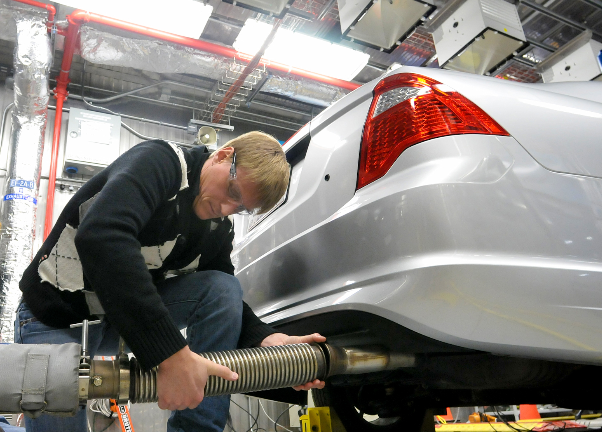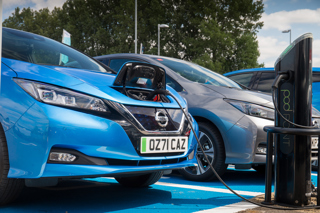There was WLTP in 2018. Now there's RDE, although one in three dealers knows little about the latest development in the new car testing regime, according to a survey by Manheim.
The new Real Driving Emissions tests (RDE) come into force on September 1. It's the latest phase of tougher emissions testing legislation that started with WLTP a year ago, and caused significant supply disruption for some brands such as Audi, Bentley and Porsche.
Complementary to WLTP, the Real Driving Emissions test measures the pollutants, such as NOx, emitted by cars while driven on the road, rather than in the lab.
Essentially, RDE ensures cars continue to deliver low emissions during on-road conditions. The clear implication is that so-called ‘cheat devices’ will be foiled.
Under RDE, a car is driven on public roads and over a wide range of different conditions with specific portable emission measuring systems (PEMS) installed on the vehicle to collect the data. The results will verify that legislative caps for pollutants such as NOx are not exceeded.
Initally, new cars sold after September 1 had to be RDE compliant, but following lobbying by the National Franchised Dealers Association the Department for Transport has agreed to allow a derogation for 12 months which allows dealers to sell any end-of-series product manufactured at least three months before RDE's introduction.
The latest dealer survey from Manheim has highlighted a lack of awareness about RDE among motor retailers.
When asked to rate their understanding of RDE, 21% rated their understanding as poor, and one in ten dealers said they had never heard of it. Just 7% of respondents said they had a good understanding of the new tests.
“When WLTP came into effect it significantly reduced new car availability, and also created longer term tax uncertainty, so it’s surprising to hear that one in three dealers has little or no knowledge of RDE," said Philip Nothard, customer insight and strategy director at Manheim.
Nothard said: “With some dealers reporting that they are already seeing an impact on new car availability, it’s clear that RDE is set to have some effect on the market.”
“With just a couple of days to go until the new tests are introduced, I would urge those dealers who don’t yet know about RDE to read up on it so that they can stay ahead of the game.”
He said that if dealers aren't clear on RDE how will consumers begin to understand it.
The survey also asked dealers about the potential impact of the new tests, with 63% of respondents confirming that they expect to see some impact on new car supply.
While 44% of respondents believe there will be a slight impact, 19% feel that the new legislation will heavily affect used car supply.
Nothard said: “We believe that OEMs are more prepared for the new tests this time around, but the results of our dealer survey suggest that there will be some impact on new car supply.”
When it comes to the potential effect of the new legislation in the wider automotive market, Nothard believes there may be an increase in wholesale volume due to tactical pre-registration activity in August:
“We’ve seen higher than average pre-registration activity throughout 2019, and it looks like this has continued in August. This suggests that there will be considerable pressure on stock balances in Q3 and Q4, and more part-exchange vehicles could be sent to auction as a result.”
“Similarly, attractive incentives may tempt fleets to replace some of their vehicles, increasing defleet volume in the wholesale market.”






















Login to comment
Comments
No comments have been made yet.